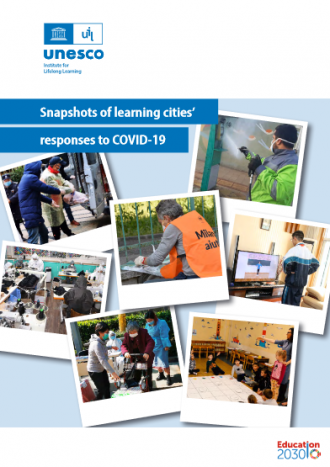

Successful conclusion of UIL capacity-building workshop on lifelong learning policies
capacitybuilding_c_shutterstock_tierneymj.jpg

The third capacity-building workshop on ‘Strengthening education systems from a lifelong learning perspective’ by the UNESCO Institute for Lifelong Learning (UIL) and the Shanghai Open University (SOU) has drawn to a close. With it, an important phase of lifelong learning policy development across the countries of Lao PDR, the Republic of Kazakhstan and Uganda. Representatives of these countries successfully drafted national lifelong learning policies and implementation strategies over the course of the three-week workshop, with support from UIL. In addition, a team of representatives of open universities across the People’s Republic of China devised a coordinated plan of action for the promotion of lifelong learning.
The workshop was implemented online via the newly established UIL Learning Hub. This platform provided participants with a variety of resources including videos, discussion forums, publications and other materials on global trends and key topics for lifelong learning policy development. Participants were guided through the process of developing national lifelong learning policy, establishing first a general direction and a rationale for the promotion of lifelong learning in the country, followed by the integration of relevant topics such as flexible learning pathways and learning cities. Key issues such as stakeholder involvement, financing and governance arrangements were also addressed.
During the workshop closing ceremony on Friday, 26 November, the four teams shared their workshop output documents with impressive results. The team from Lao PDR drafted a national lifelong learning implementation strategy, the first phase of which will involve the creation of a framework for the recognition, validation and accreditation (RVA) of learning outcomes. This is linked to the Prime Minister’s Decree on Lifelong Learning issued in 2020 as well as the National Qualifications Framework (NQF) currently under development. The team from the Republic of Kazakhstan also focused on RVA by preparing a strategy for the formal creation of an RVA system in the country, to be reinforced by a legal framework.
For Uganda, the priority is developing a national lifelong learning policy document to define lifelong learning in the Ugandan context, assert the centrality of lifelong learning to national transformation and development, and unify diverse lifelong leaning initiatives already provided by various policies, laws, frameworks, sectors and institutions across the country. During the workshop, the team established the core components of this policy.
The team of representatives from open universities across from the People’s Republic of China focused throughout the workshop on the role of the open university system and, accordingly, developed as their workshop output document an action plan for open universities’ promotion of lifelong learning across the country. This action plan will have three thematic phases: (1) enhancing digital skills for all, (2) ensuring lifelong learning accessibility for older adults, and (3) promoting non-degree-based education and accelerating its integration with degree-based education.
All four teams established roadmaps for the further development, finalization and implementation of their workshop output documents and UIL will continue to support them throughout this process.










